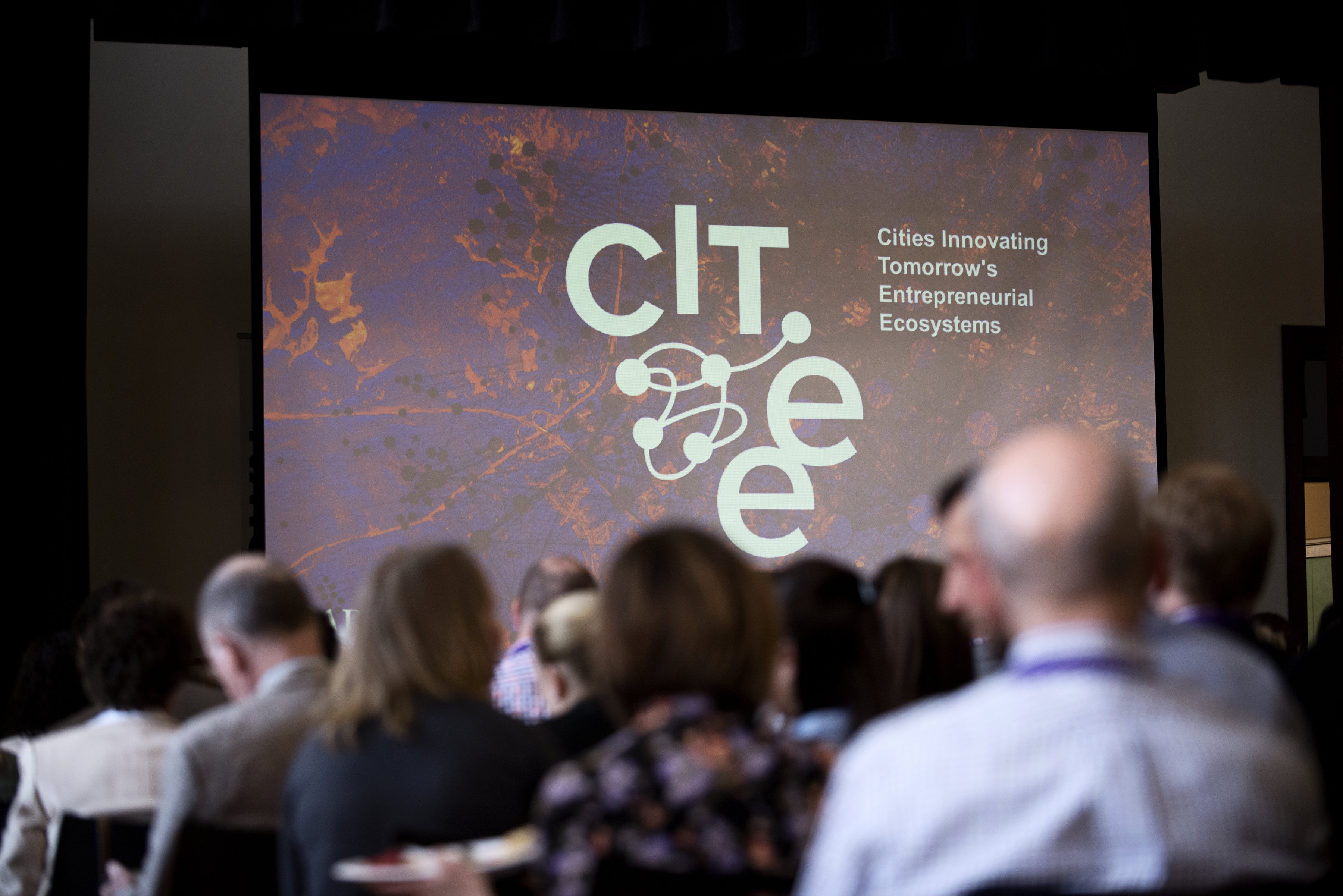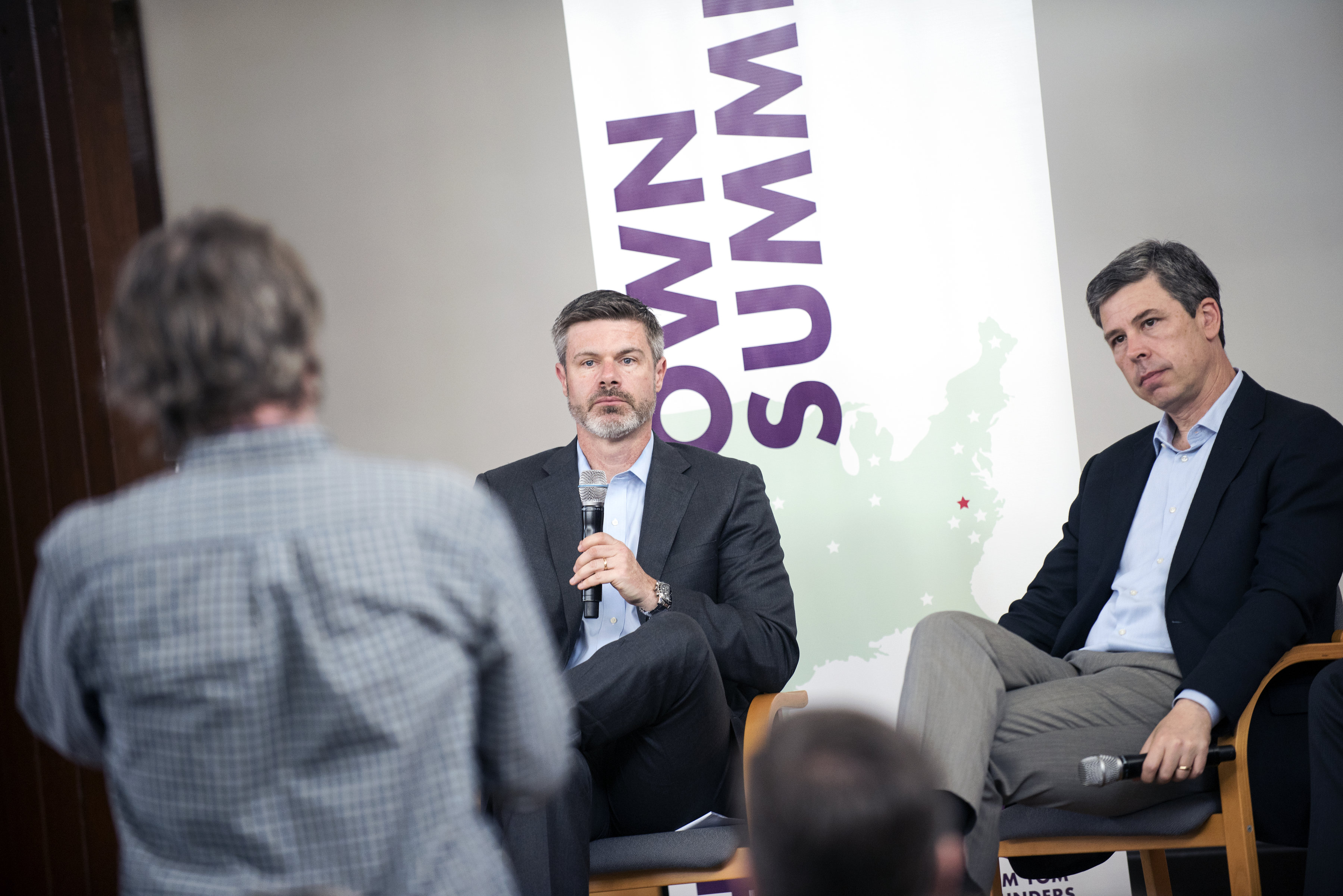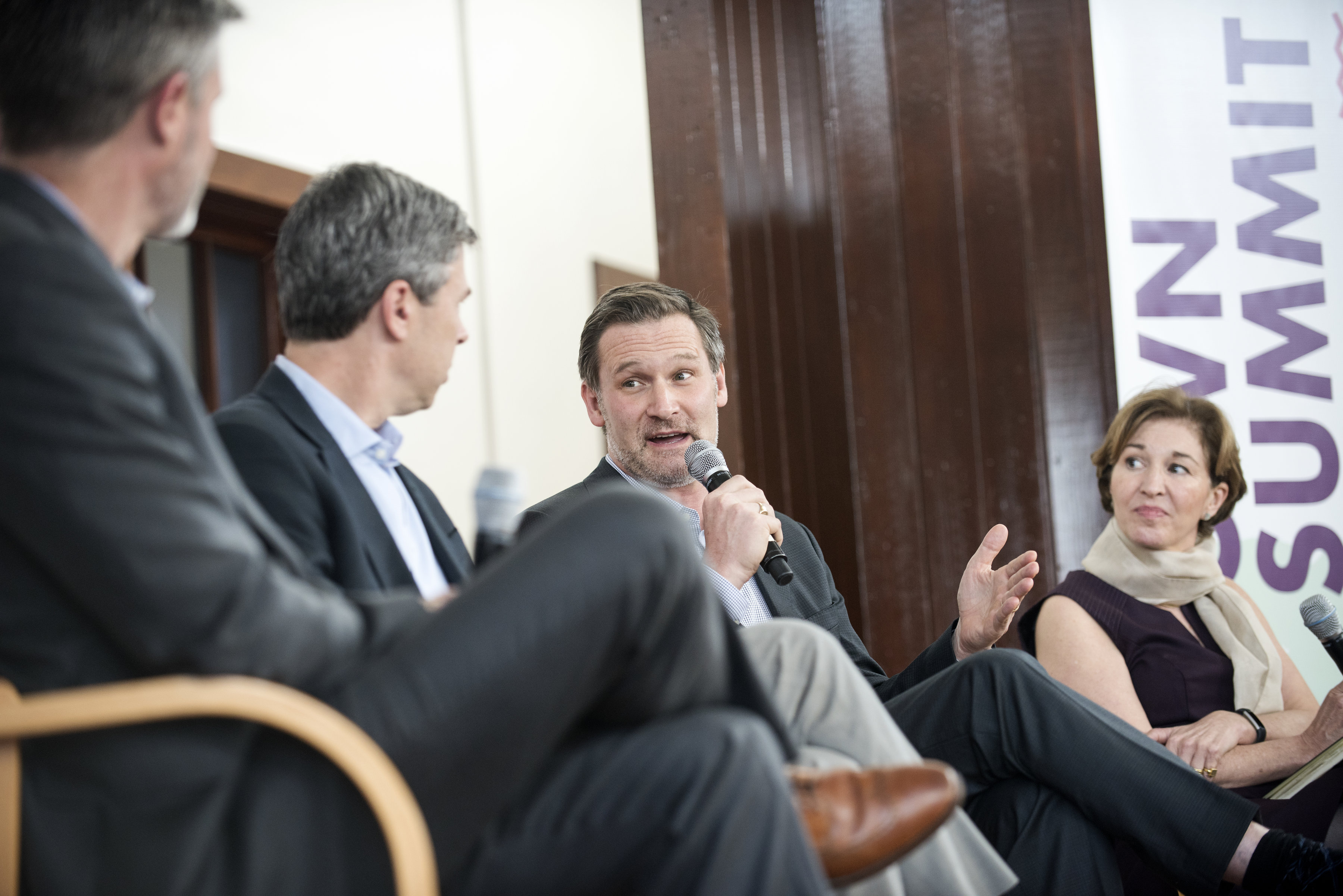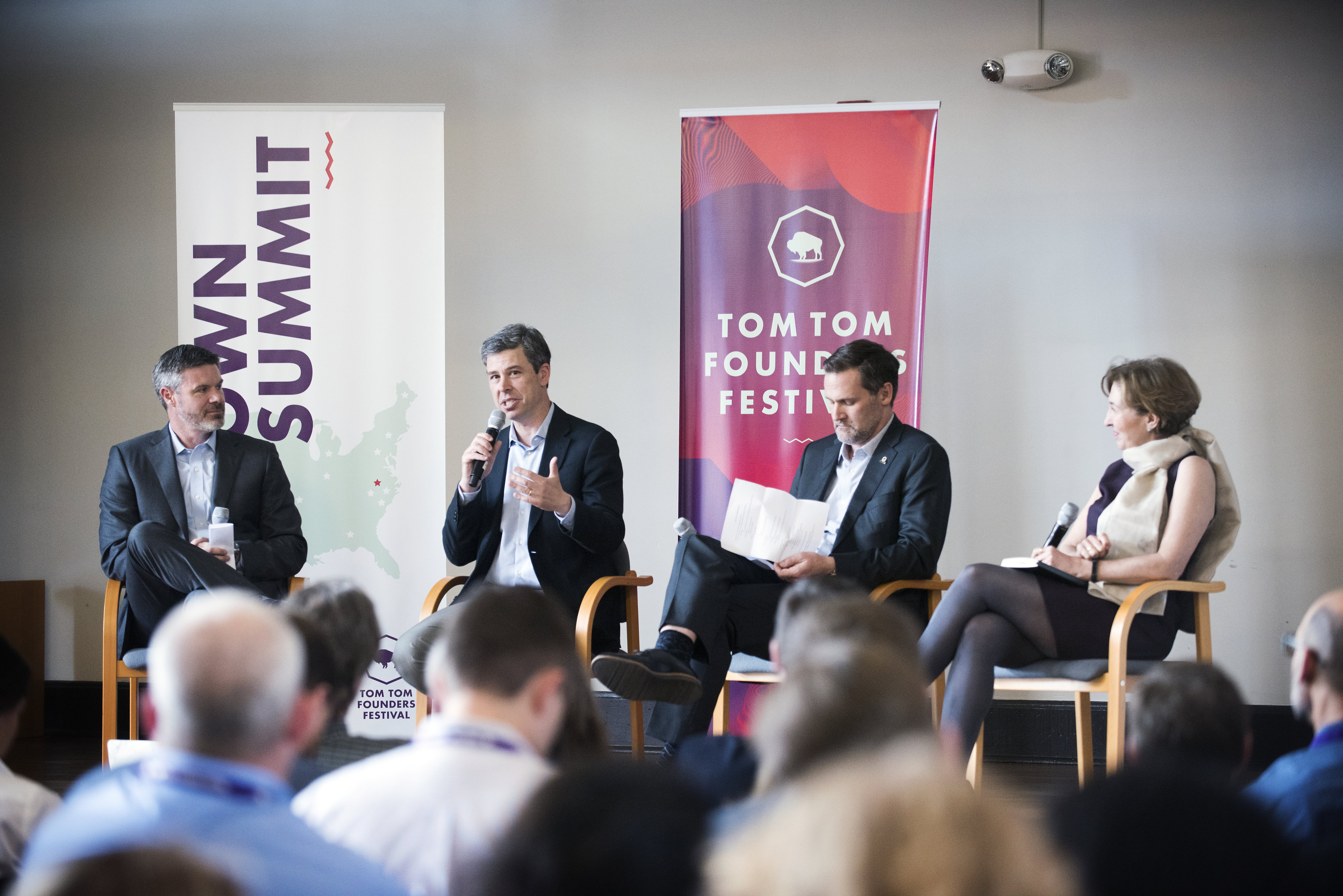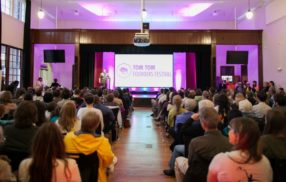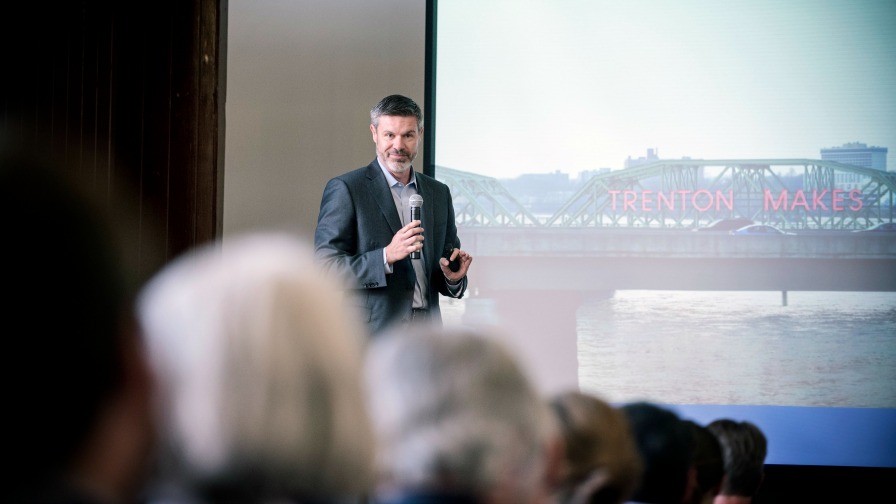
Prosperity and Pitfalls: The Impact of Entrepreneurial Ecosystems in Small Cities
By Carlos Santos
At the Tom Tom Founders Festival’s Hometown Summit on 14 April in Charlottesville, Virginia, University of Virginia Darden School of Business Professor Mike Lenox joined a panel of mayors and experts to dissect the reasons some small cities become thriving entrepreneurial communities while others simply decay. They also probed the downside of creating a city-based entrepreneurial ecosystem — income inequality, traffic and staggering housing costs.
Presented in partnership with Darden, the inaugural Hometown Summit was created as a conference for leaders redefining small cities across the country.
Lenox spoke of his hometown — Trenton, New Jersey — as a classic example of a once flourishing entrepreneurial city that fell into disrepair. Poverty, crime and joblessness festered when he grew up there. “It’s a city near and dear to my heart, but it was a city in decay.”
That wasn’t the case at the turn of the last century. Trenton boasted thousands of startup companies, a huge arts and crafts center, and an enormous pottery industry that included the Lenox Company, which was founded in 1889 by Walter Scott Lenox, Mike Lenox’s great grand uncle. The Lenox Company, like many other businesses in the craft artisan market, shifted to mass production as demand for its products increased. The boom began. Then, over the decades, demand fell, competition increased, innovation ceased and the city decayed.
The same sad tale could be told about Lowell, Massachusetts, once the king of American textiles, and of Detroit, which Lenox said was arguably the “Silicon Valley” of the early 20th century.
Lenox is part of a multi-disciplinary research team studying the reasons behind the emergence of cutting-edge economic ecosystems that lure talent, innovation and high-paying jobs to cities but can also create problems. Called CIT.ee — or Cities Innovating Tomorrow’s Entrepreneurial Ecosystems — the project seeks to inform policymakers and business leaders who have been challenged to design an effective playbook to advance entrepreneurial activity in their own communities.
“Some cities try to mimic Silicon Valley,” said Lenox. “I’d argue it’s not a good idea. Do we really aspire for our communities to be like Silicon Valley, one of the most expensive places to live in the country? Median home prices top $1 million there. Even the gentrified are getting gentrified. Is that what we really want?”
Questions abound. Exactly what is an entrepreneurial ecosystem? Is it new restaurants or a new dry cleaner or only high-flying startups? Is there something about innovation that creates these ecosystems? And what draws the innovative talent? Is it strong research? The natural beauty of the area? Venture capital? Angel networks? Incubators and accelerators? A blossoming cultural scene? Lenox suggested that the answer may be all the above, though in some cases the causation could be reversed. Perhaps talent draws venture capital or helps create a lively cultural milieu.
Other panelists offered their thoughts on fashioning successful cities. Anne-Marie Slaughter, president and CEO of New America in Washington, D.C., said cities should learn “to invest in your local talent.” New talent is always attracted to thriving entrepreneurial ecosystems. “But what about the folks we have right here? Every place has a distribution of talent. Stop attracting and start lifting up,” she said.
Andy Berke, mayor of Chattanooga, Tennessee, said his city was once dubbed the dirtiest city in America, but “we turned things around. We rebuilt the city from the downtown core out. But our biggest driving force was building the fastest, cheapest internet in the world. We have 10 gigs per second for everyone.”
The spotlight naturally fell on Charlottesville, too, home of a research giant and economic engine in the University of Virginia. Entrepreneur magazine ranked the city No. 4 on its list of the 50 best cities for entrepreneurs and the National Venture Capital Association named it the fastest growing venture capital ecosystem in the United States in 2016. The Financial Times also ranked Darden the No. 3 MBA program in the world for entrepreneurship.
“Charlottesville is a nascent entrepreneurial ecosystem,” said Lenox. “The question is: What can we do to drive the ecosystem forward and what are the consequences? What is our future — Austin, Aspen or Arlington? I fear if we don’t build up a robust economy, we could become purely an enclave of the rich. We could hurt the fundamental fabric of the city. On the other hand, as we grow and are successful, will we lose the character of the town? My worst nightmare would be to become part of the D.C. urban sprawl.”
Charlottesville Mayor Mike Signer says cities are “faced with waves of disruptive changes sweeping across the country,” including demographics, medical advances, autonomous cars, refugees and a “gig economy” where workers toil mostly as independent contractors.
“A lot of change scares a lot of people,” Signer said. “They can react with optimism or pessimism to these changes. They can close their hearts or embrace everything. Policymakers can react to these disruptive waves with creativity or innovation or reject them and use static models. Cities do have different characters. The city we’re creating is casting its lot with optimism, openness and creativity.”
Lenox said Charlottesville is moving into an unknown frontier. “Our fate has not been written yet. We’re beginning a journey as a city.”
The University of Virginia Darden School of Business prepares responsible global leaders through unparalleled transformational learning experiences. Darden’s graduate degree programs (MBA, MSBA and Ph.D.) and Executive Education & Lifelong Learning programs offered by the Darden School Foundation set the stage for a lifetime of career advancement and impact. Darden’s top-ranked faculty, renowned for teaching excellence, inspires and shapes modern business leadership worldwide through research, thought leadership and business publishing. Darden has Grounds in Charlottesville, Virginia, and the Washington, D.C., area and a global community that includes 18,000 alumni in 90 countries. Darden was established in 1955 at the University of Virginia, a top public university founded by Thomas Jefferson in 1819 in Charlottesville, Virginia.
Press Contact
Molly Mitchell
Senior Associate Director, Editorial and Media Relations
Darden School of Business
University of Virginia
MitchellM@darden.virginia.edu


